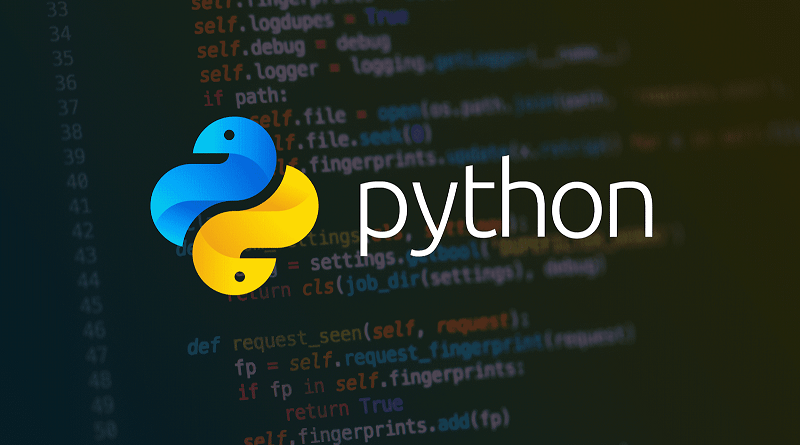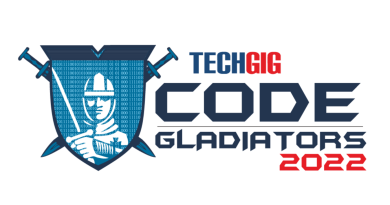Top 8 Best Tips For a Successful Python Career
With the world getting increasingly dependent on software and web applications, programming languages are among the most advantageous skills one could possess. Python is very popular in the programming world today, and consequently a Python developer can have a very successful career.
If you’re looking for advice and information on how to be successful as a Python developer, this guide is for you.
What is Python?
Python is a general-purpose language for programming that may be used to construct software, as well as web and mobile applications. Python is well-known for its ease of learning and breadth of functions and applications.
What is the role of a Python developer?
Python developers utilize the Python programming language to create, implement, and debug applications. Python is a programming language that is used by software engineers, online and mobile application developers, programmers, and even data scientists.
The projects and apps developed are suited to the developer’s employer’s requirements. Certain Python developers may even work for numerous employers independently.
Python is used by some of the biggest firms, such as Google, Facebook, Spotify, and Netflix.
Python development: Demand
- Python is anticipated to overtake Java and C as the most popular language in the next three to four years, according to trends on the TIOBE index. (Source: InfoWorld)
- Python developers are in high demand both in India and abroad as a result of industries recognizing the benefits of Python.
- Python proficiency is required for positions other than the developer. Python also qualifies you for occupations such as DevOps engineer, data analyst, data scientist, and software engineer. (Indian Analytics)
The most crucial skill in computer programming is learning how to learn.
Why is it critical to understand how to learn? The explanation is straightforward: when languages evolve, libraries and tools are built and enhanced. Understanding how to learn will be critical to navigating these changes and developing into a competent programmer.
We’ll discuss numerous learning tactics in this article to help you become a better Python developer:
- Everyday Coding
When learning a new language, being consistent is critical. We encourage making a daily commitment to coding. While it may be difficult to believe, muscle memory plays a significant role in programming. Committing to coding regularly significantly aid in the development of that muscle memory.
Though it may be daunting at first, consider starting small with 25 minutes daily and gradually increasing your time.
- Take Notes
As a rookie programmer, you may wonder if you should be taking notes. You should! Indeed, research indicates that taking notes by hand is the most effective way to ensure long-term memory.
This is especially advantageous for individuals aspiring to be full-time developers, as many interviews would require them to write code on a whiteboard.
Once you begin working on little projects and programmes, writing by hand can also assist you in planning your code prior to transferring it to the computer. You save a lot of time by outlining the functions and classes that you will require, as well as their interactions.
- Make it interactive
It doesn’t matter if you are learning Python data structures (lists, strings, dictionaries, and so on) for the first time or debugging an application; the interactive Python shell will prove to be an invaluable learning tool.
To begin using the interactive Python shell (affectionately referred to as a “Python REPLâ€), ensure that Python is installed on your computer. To invoke the interactive Python shell, simply open a terminal window and type Python or python3, depending on your installation.
- Take Breaks
It is critical to take a break and allow the knowledge to sink in. The Pomodoro Technique is frequently used and can be beneficial: you work for 25 minutes, take a 5-minute break, and then repeat. Breaks are crucial for an effective study session, even more so when a large amount of new material is being absorbed.
Breaks are critical for debugging. If you encounter a bug and are unable to determine what went wrong, take a break. Take a break from your computer, go for a stroll, or have a conversation with a buddy.
In programming, your code must strictly follow the laws of the language and logic, so you must take breaks frequently.
- Associating With Others
While coding may appear to be a solitary hobby, it works best performed collaboratively. When learning Python, it is critical to surround yourself with other students. This enables you to share any tips or tricks you discover along the route.
- Educate
It is commonly believed that the most effective approach to learning something is to teach it. This is especially true when studying Python. There are numerous ways to accomplish this: whiteboarding with other Python enthusiasts, writing blog entries explaining freshly acquired concepts.
Moreover one could do filming videos explaining newly acquired concepts, or simply conversing with yourself at your computer.
- Pair Programming
It is a process in which two developers collaborate on a job at the same workstation. The two developers alternate between the roles of “driver†and “navigatorâ€.
The “driver†is responsible for writing the code, whilst the “navigator†assists in problem-solving and reviews the code as it is developed. Alternate often to reap the benefits of both parties.
Pair programming has numerous advantages:
- It enables you to not only have your code reviewed but also to understand how another person could approach an issue.
- Exposure to a variety of concepts and methods of thinking will aid you in issue solving when you return to coding alone.
- Make Something
For novices, there are numerous simple workouts that can help you gain confidence with Python and create the muscle memory discussed previously. Once you’ve mastered fundamental data structures (strings, lists, dictionaries, and sets), object-oriented programming, and class authoring, it’s time to get started.
What you build is secondary to the manner in which you build it. The process of construction is exactly what teaches you the most. Reading Real Python articles and classes will only teach theoretical knowledge. The challenges you’ll be solving will teach you a great deal.
Python developer Job Tips
Here are some helpful tips for a profession in Python.
- Acquire command of the language
Establish a solid foundation with Python’s fundamentals before moving on to advanced topics such as data models, bytecode semantics, runtime stack inspection, coroutines etc. Only after gaining a thorough command of the language can you feel comfortable using it in the workplace.
- Acquire appropriate certifications
While self-learning Python is a viable choice, if you want to make your skills appear more authentic, it is advisable to enrol in a course or obtain a certificate.
If you’re interested in a specific career path or job profile, you can earn a certificate by doing any of the Python tutorials for beginners. It will strengthen your CV and help you make a favourable impression on a prospective employer.
- Keep an eye out for blogs and tutorials.
It is critical to stay current on all developments in the world of Python and its applications. One approach to accomplish this is to use the Internet to follow intriguing blogs and educational tutorials that provide regular updates on Python and its real-world applications.
- Finish Python projects in their entirety
Accomplished projects, whether completed independently or as part of a course, are important for you to master the language. It not only broadens your work experience but also aids in your professional development as a programmer.
You can proceed to more sophisticated functions as you gain experience, gradually honing your Python skills.
- Select a field of expertise
Python can be used for a wide number of tasks and in a wide variety of industries. Rather than becoming another programmer in a sea of programmers and developers emerging daily, it is preferable if you have a clear picture of what you want to use your Python abilities for.
Whether it’s business research, data analysis, machine learning, or web development, having a defined objective can help you choose your Python career path more effectively.
Why would you want to pursue a profession in Python development?
Python is an incredibly easy-to-learn and versatile programming language. Python jobs are also on the rise as a result of the language’s rapid growth in popularity and the widespread reliance on the web- or computer-based applications.
Python’s adaptability has resulted in successful projects and innovations in a variety of disciplines, including software development, science, the arts, and business, education, and government administration.
Thus, taking up a Python online course and honing your skills to become a better programmer is a very good career choice. What are you waiting for?




Pingback: Python vs JavaScript vs C++ - Best Programing Language?